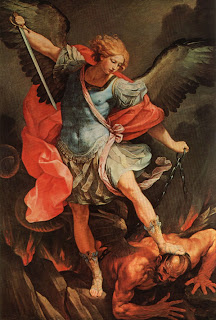The gospel was truly a shock and a great joy I was born in 1952 in Tiberias, parents French Jews, both Ashkenazi origin. My father, who had made the Israel War of Independence, then wanted to return to France where I grew up. At seventeen years in Paris, I became very active in the Zionist movement of "Betar", with which I participated actively in the freedom struggle of Soviet Jewry (then the Jewish community in France was very reservations about this kind of public action against the Soviet institutions). Sometimes we would also do the punch in rallies anti-Semitic or anti-Zionist. Nothing intimidates us, therefore, that Israel was involved.
At twenty-one years, I went to Israel where I made a gradual return tradition, first in a religious Kibbutz then, on the encouragement of a religious friend, * Yeshiva in Jerusalem. The Yom Kippur War broke out, I volunteered for the army. In this country, especially in the army, I realized that the Jewish people could not find his identity outside of his faith in God and tradition.
After my military service in a combatant, I am back in France and I went to study at Yeshiva Students in Strasbourg. The discovery of traditional Judaism with Rabbi Eliyahu Abitbol has remained one of the great wonders that God has done in my life. Two years of Yeshiva were a time of intense study and prayer. We got up early in the morning, about five hours to study a little Halacha * lunch we ate as quickly as possible to avoid losing time and we devoured the Guemarra * and the Torah, often until about eleven pm. The long day ends with the study of * Parasha of the week. Shabbat was really the center of the week as the rabbis say, and when I see this period was blessing upon blessing, I felt a continuity with the history of the Patriarchs. But all was not perfect, far from it.
In the study I like a fish in water, but in the way of life and thought I felt a gap between the completion of the Torah and the history of Israel. I discovered the treasures of truth and a spiritual force that seemed more than sufficient to allow the Jewish people to take its place among the nations. But we lived as if the practice and study of the Torah were isolated, with no perception of Israel as a people. While having a profound vision of the alliance, we were deprived of vision, such as, for example, she outlined in Zionism outside religious circles. It seemed to me that studying the margins of history of humanity. Paradoxically, while fulfilling the mitzvot *, we were back from God's plan for Israel. I found it hard to understand why it was necessary to separate the life of a Ben Torah (Torah man) effort of the Jewish people to live openly identity. And I had the curious impression that the gap between the life of the Torah and the life of Israel was maintained at all costs and artificially, as if we were afraid of the great strength that God gave the Jewish people in covenant and the Torah. I was full of unanswered questions and objections that I could not articulate. That made my life pretty hectic at the Yeshiva times.
I ended up leaving the Yeshiva and after several months of despair - particularly convinced that I never find a "religion" as great - I went on vacation to a remote valley in Corsica where I had friends. Here, in the midst of extensive reading on religion, I opened a New Testament. I certainly did not expect to see the resurgence of Yeshiva discussion by opening this book. Yet I was immediately plunged into this atmosphere still fresh in my mind. But this time I found in the words of Jesus reconciliation between the Torah and history. Sometimes education Jesus surprised me, but responded fully to my expectations.
reading of the gospel was truly a shock and a great joy for me. I was struck particularly by the discussion between Jesus and the masters of Jewish Pharisee about freedom. Jesus said: "Whoever commits sin is a slave to sin. Now the slave does not continue in the House, the son continues. So if the son sets you free, then you will truly be free." (John 8: 34-36). At first, the logic yeshiva told me: "There is a contradiction in these words in the Torah is the slave his freedom outside the home and supply through Jesus his house. "Yet in the days that followed I felt a great presence of God and infinite mercy to my sins I suddenly became conscious. I went into a new freedom. Direct access to God was given to me by the Son which says: "Only the Son remains in the House and if the Son sets you free (of sin), you will truly be free."
This reminds me a little personal anecdote. Rabbi Nachman of Breslov, a Hasidic master of Judaism, recommends to pray God in his mother tongue outside the ritual prayers. One night at the Yeshiva, I went down in the schoolroom, and facing the Torah I tried to pray in French. But it was a real night with nothing to say, not knowing what to ask God. I went back to bed rather disappointed that experience cold. However, when I received Jesus as Savior and Messiah, God has opened the door of prayer, communication alive with Him.
Yohanan Goldman
Professor at the University of Fribourg in Switzerland.
GLOSSARY:
Yeshiva: School of Rabbinical Studies
Halacha: Texts on the precepts of Judaism
Guemarra Central part of the Talmud
Parasha: Portion of the Torah read on Shabbat mitzvot
: Commandments
Source






















